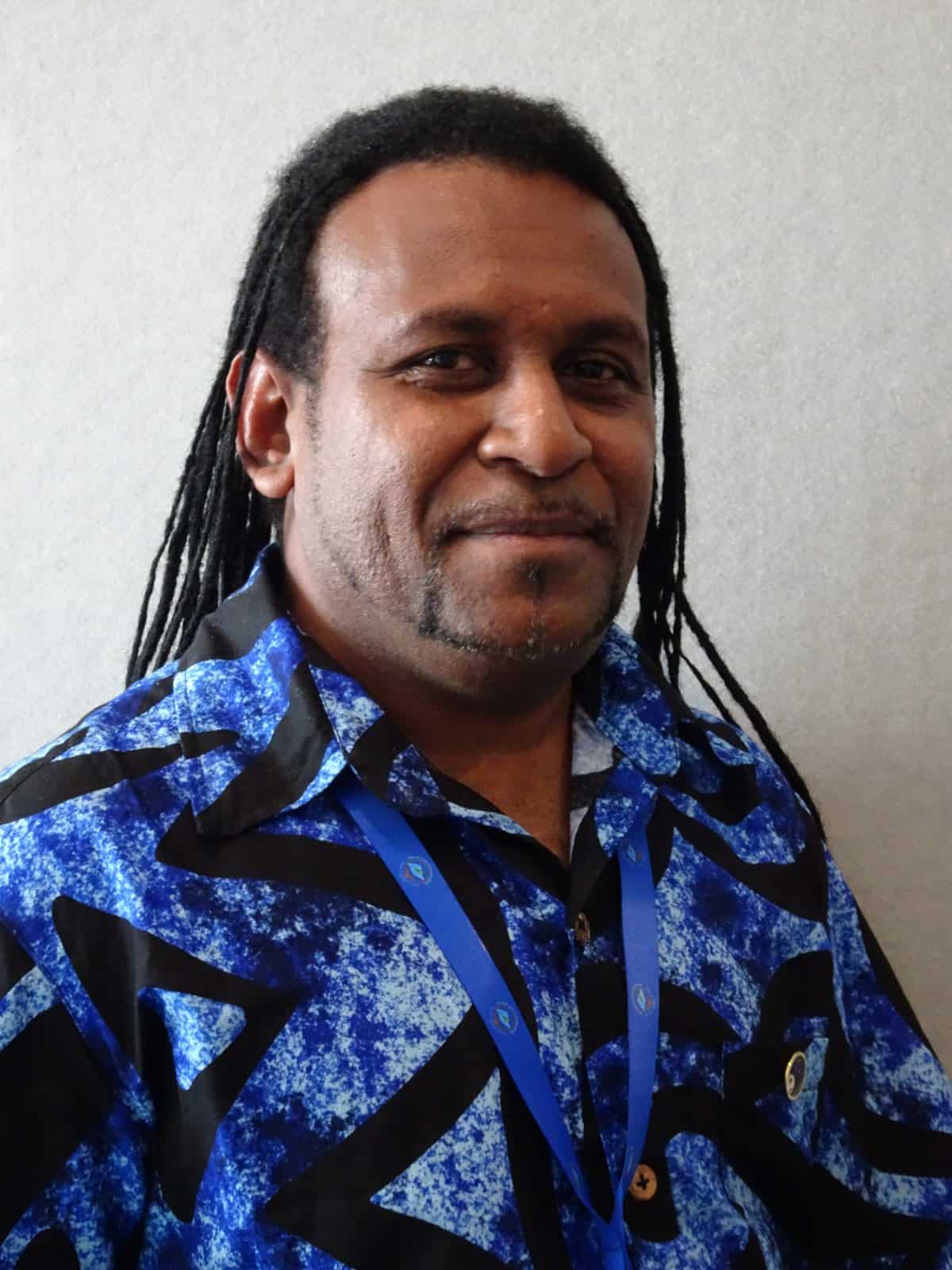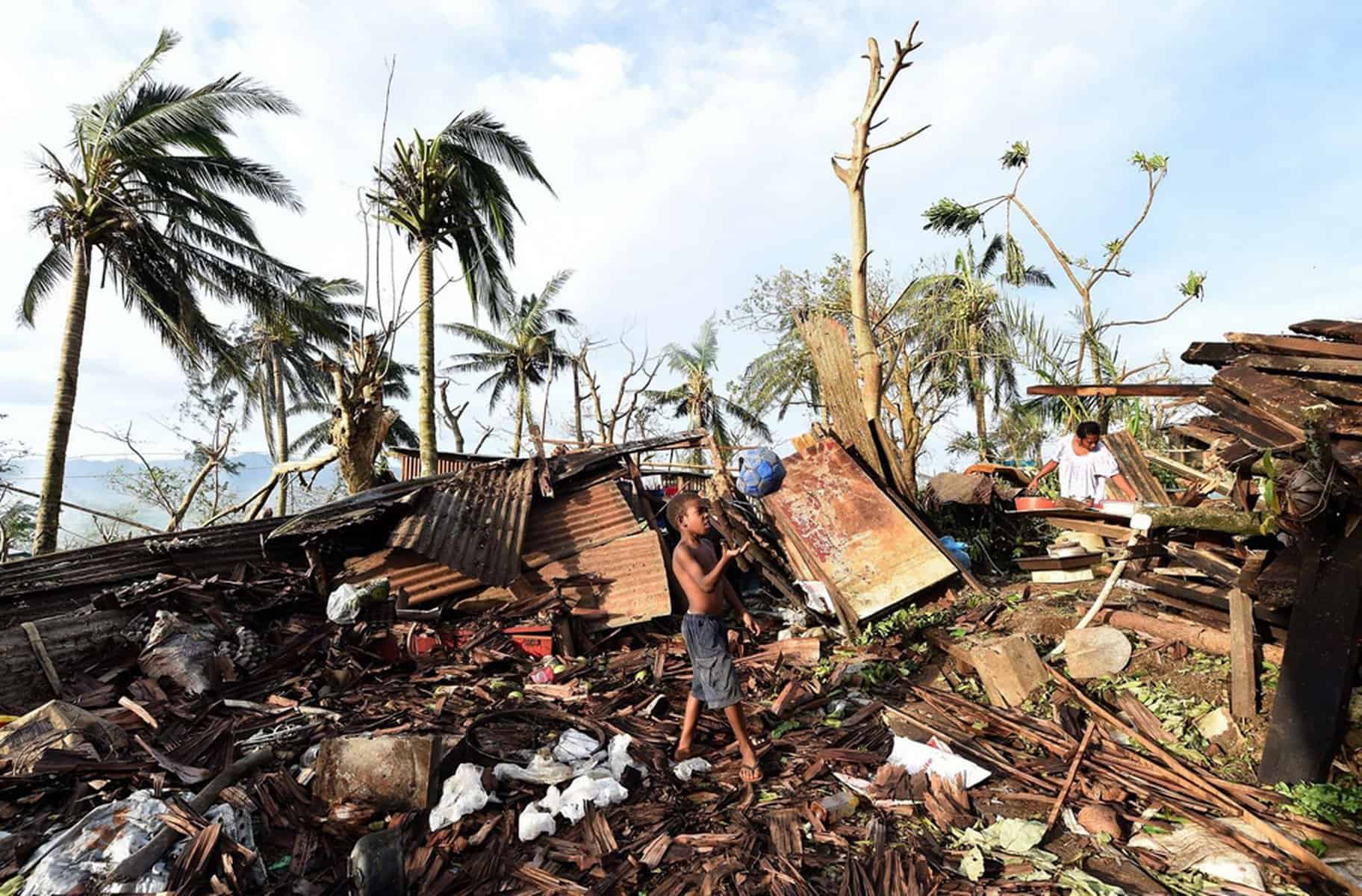In the final days of the global climate negotiations in Dubai, countries continue to argue over the “phase out” or “phase down” of fossil fuels. United Arab Emirates, the host nation of the 28th Conference of the Parties (COP28), has joined other fossil fuel exporters to water down language on emissions reductions in the final communique, while the United States, China and the European Union seek to drive outcomes that reinforce their geopolitical influence.
Even as they seek to keep global warming within 1.5° of preindustrial temperatures, Pacific Small Island Developing States (PSIDS) are also fighting on another crucial front – climate finance.
Pacific delegations at COP28 want major industrialised nations to contribute their fair share of climate finance and technical assistance to developing countries – resources desperately needed to adapt to the adverse effects of climate change, speed the transition to renewable energy systems, as well as address the devastating loss and damage from cyclones, sea level rise and ocean acidification.
In Dubai, Pacific church and civil society activists, government ministers and technical experts from the Pacific Community (SPC), Forum Secretariat (PIFS) and Pacific Regional Environment Program (SPREP) are still hard at work. Even in a meeting flooded by more than 2,400 fossil fuel lobbyists, Pacific delegates continue to campaign for increased levels of climate finance, improved access to global funding mechanisms and ensuring that extra resources are targeted on the most vulnerable nations and communities.
Vanuatu, Marshall Islands, Samoa and Tuvalu are amongst 13 countries that have formed a Coalition of Ambition on Adaptation Finance at COP28, as developing nations seek increased resources to adapt to the adverse effects of climate change.
Recognising the link between climate resilience and development, the coalition has agreed “to work towards the equitable delivery of high-quality grant-based finance, concessional finance, and other forms of finance which enables those countries most affected by climate change to access resources quickly and fairly to enable their communities to adapt in line with priorities identified in their national plans.”
Samoa is the current chair of the Alliance of Small Island States (AOSIS), which links 39 nations from the Pacific, Caribbean, and Indian Oceans. At COP28, Samoa’s Minister of Natural Resources and Environment Toeolesulusulu Cedric Schuster has been raising AOSIS concerns that larger developing countries are seeking the same status in negotiations as more vulnerable island states.
Pacific delegates are angered that, in recent days, larger nations have sought to delete references in the COP28 communique to the special vulnerability of Small Island Developing States (SIDS) and Least Developed Countries (LDCs).
“We are concerned there are ongoing difficult negotiations of attempts to delete the reference to special circumstances of SIDS across the agenda item or negotiations,” Toeolesulusulu said. “As AOSIS, we need to be united in sending out the messages related to the special needs and circumstances of SIDS, as we are identified at international law as special case for sustainable development.”
Accessing climate finance
Exsley Taloiburi is Deputy Director for the Disaster and Community Resilience Program at the Pacific Community (SPC). Hailing from Solomon Islands, Taloiburi has long served as a technical adviser for Pacific delegations at the annual COP negotiations.
For Taloiburi, accessing climate finance is made more difficult when donors ignore the capacity constraints facing atoll nations.
“Right now, it’s an open market competition ,” he noted. “What we face now, for SIDS and LDCs with small capacity, we are missing out and not accessing our fair share of financing. Other developing countries that have large capacity are gaining access to the resources that are intended for all of us.”

On 8 December, Australia’s Foreign Minister Penny Wong and Minister for Climate Change and Energy Chris Bowen announced that “Australia will contribute a foundational $100 million to the Pacific Resilience Facility (PRF) and will rejoin and contribute $50 million to the Green Climate Fund (GCF).”
A decade ago, Australia served as co-chair of the GCF, after making an initial contribution of $200 million in 2014. Australian diplomat Howard Bamsey was the inaugural head of the GCF Secretariat in Songdo, Korea. However, after the former Morrison government withdrew from the global financing mechanism, Australia did not contribute more funds during the first replenishment round of funding for the GCF in 2020-23.
Now, the “modest” contribution for the GCF announced by ALP Albanese government is a sign that Australia is seeking to burnished its climate finance reputation, as it lobbies to host COP31 in 2026 (despite this, Australia has not announced a contribution to the new Loss and Damage Fund).
While governments pledge large sums of money at the annual COP summits, it often takes time before these are endorsed through national parliaments, let alone translated into action on the ground. This year, for example, US President Joe Biden has pledged US$3 billion to the Green Climate Fund – but the Republican-controlled House of Representatives are unlikely to pass this funding. Developing nations also recall the fate of the Obama administration’s pledge of the same sum to the GCF, which was abandoned when Donald J. Trump won office in 2016.
Beyond this, OECD nations failed to meet the 2020 target for climate finance under the Paris Agreement on Climate Change. Since then, resources that might be targeted on the climate emergency, development justice and human livelihoods are being drained away as wars rage in Europe and Israel/Palestine. As citizens around the world seek a ceasefire to halt the massacre of civilians and non-combatants, major powers have increased spending on armaments and military forces to nearly US$2 trillion a year – far beyond any finances committed to the existential threat of climate change!
Ever since the start of the UNFCCC process three decades ago, developing countries have also been critical that some industrialised nations are simply rebadging Official Development Assistance (ODA) as climate finance, rather than generating new and additional resources. Many Pacific governments continue to lobby Australia and New Zealand, the largest Forum members, about their reluctance to engage with new and innovative sources of financing.
“Climate finance should be new and additional to ODA,” says SPC’s Exsley Taloiburi. “That’s an ongoing issue that has taken up for many, many years, but up to this stage remains unresolved. There is no common agreed definition within the UNFCCC process for climate finance. That is one of the key priorities that PSIDS and other developing countries are pushing at COP, to ensure that this definition is resolved.”
He noted that over the past decade “Pacific SIDS are focusing their effort primarily on the Green Climate Fund, the Adaptation Fund or the Global Environment Facility. In doing that, we’re missing out on a lot of opportunities outside the UNFCCC process, such as initiatives around carbon levies on shipping, green and blue bonds, or debt for climate swaps. This is work in progress. However our Pacific countries are not waiting – some are moving forward, even though there is no consensus within the Forum.”
Under the 2015 Paris Agreement on Climate Change, the global annual target for climate finance must ramp up after 2025. However Taloiburi says that, even with new pledges, bodies like the GCF must do more to engage locally with the daily realities of small island states.
“Our Pacific leaders and ministers have been calling on the GCF Board to establish a regional presence,” Taloiburi said. “This would assist our Pacific countries to enhance their access to GCF resources, but also allow the GCF to understand more about the unique context of our region. For example, in our region transportation costs are really, really expensive, and can mount to 4 to 5 times the actual cost of the project. Working from Songdo, the GCF has had trouble understanding our regional context when we put forward budgets for projects.”
Loss and damage finance
After years of campaigning by Pacific island nations and fellow members of AOSIS, COP28 has agreed to put the new Loss and Damage Fund into operation.
Last week, Fiji Prime Minister Sitiveni Rabuka told the COP28 plenary: “We welcome progress made this week in the establishment of the Loss and Damage Fund. We urge the Fund should be more targeted to the special challenges confronting Small Island Developing States, because we are the most exposed and most vulnerable.”
For SPC’s climate finance advisor Exsley Taloiburi, it’s a significant achievement.
“It was one of the key milestones from the beginning of this COP, where they actually operationalised the new Loss and Damage Fund from the first day,” he said. “The push to set up this Fund was initiated mainly by those of us in the Pacific 20 years ago. Now it’s really, really good to see that this fund has been operationalised. However our leaders need to understand that this is not a fund that will be ready to disburse funds in 2024.”
Despite welcoming this step forward, there are ongoing negotiations in the final days of COP28 to determine the composition of the Loss and Damage Fund Board. Forum delegates at COP28 are lobbying for Pacific Islands representation on the Board, recognition of the special circumstances of SIDS and ensuring that funding is awarded as grants rather than loans.
Speaking alongside other Forum ministers in Dubai, Vanuatu’s Climate Minister Ralph Regenvanu also noted: “The current funding gaps for addressing loss and damage are massive and inadequately reported. Neither humanitarian nor insurance mechanisms are able or suited to meet the needs of Vanuatu’s most vulnerable.”
The United Nations Office for Disaster Risk Reduction (UNDRR) has now been chosen as the host of the Santiago Network on Loss and Damage. This is a proposed roster of technical experts to assist developing countries prepare feasibility studies and funding proposals for projects around the damage caused by disasters and the slow onset effects of climate change.
The UN agency was first created in 1999, and has an office in Suva that will assist regional work on Loss and Damage. However, SPC’s Taloiburi want UNDRR to broaden its outreach and focus on the full spectrum of adverse climactic effects.
“At the moment one of the concerns of some of our Pacific states is that UNDRR’s level of engagement with them is not really meaningful,” he said. “There is also an issue of how you bring in slow-onset considerations into the discussion, noting that the core function of UNDRR is about disaster risk management.”
For RMI Climate Envoy Kathy Jetn̄il-Kijiner, the debates about financing should not just focus on physical damage, but also the social and cultural impacts on island communities.
“When we talk about Loss and Damage, a lot of what takes priority are discussions about single disasters and then quantifying the amount that’s lost from property damage and things like,” she said. “What I see as an issue we need to continue to explore a little bit more is how we quantify cultural loss, cultural livelihoods and cultural impacts, which is a key priority for many of us in the Pacific.”
